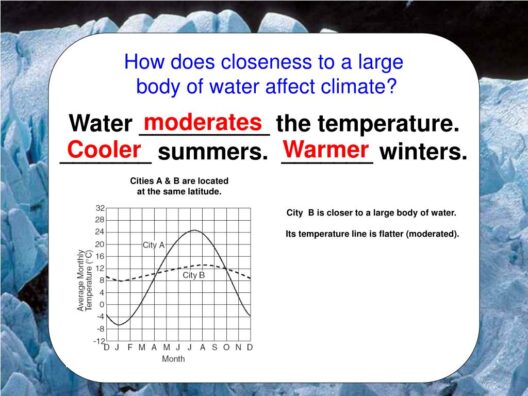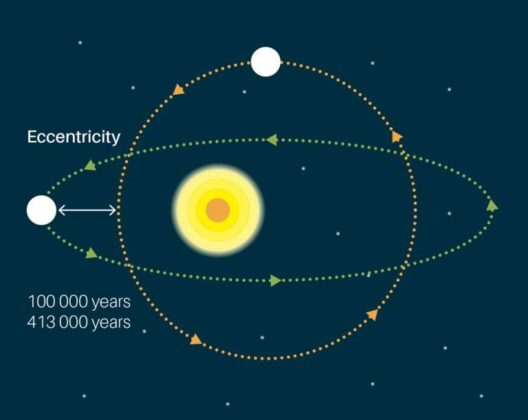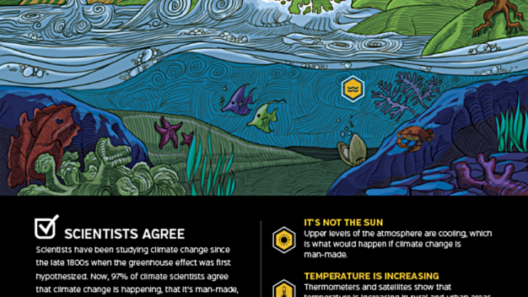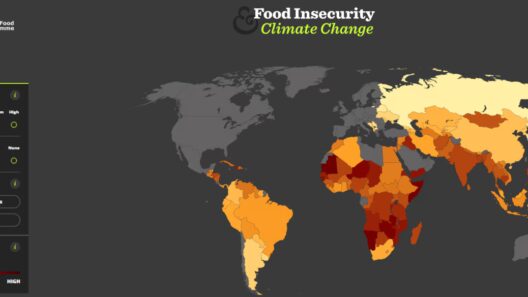The topic of climate change often elicits a visceral response. Indeed, one might pose the playful question: “Is climate change even important?” At first glance, this may seem an absurd query, given the mounting evidence of environmental degradation and meteorological anomalies. However, the intensity of the debate surrounding climate change underscores its complexity and significance. This discussion, or perhaps more aptly termed a contentious dialogue, is unlikely to dissipate, implying its importance in contemporary discourse.
To grasp the gravity of climate change, one must first delve into its empirical roots. Global temperatures have escalated, leading to increasingly severe weather patterns. The Intergovernmental Panel on Climate Change (IPCC) has unequivocally stated that human activities, particularly the combustion of fossil fuels, are major contributors to this phenomenon. The resultant greenhouse gases, which encapsulate the Earth’s heat, have created a precarious balance, triggering alterations in natural ecosystems that endanger biodiversity. For those who ponder the relevance of climate change, the ecological ramifications alone provide a compelling reason to engage in this discourse.
Yet, the implications of climate change extend far beyond environmental concerns. Economically, nations grapple with the ramifications of extreme weather events, which exacerbate poverty and exacerbate resource scarcity. Natural disasters, intensifying in frequency and severity, dismantle infrastructure, disrupt agriculture, and necessitate costly emergency responses. The financial burden often lands disproportionately on developing nations, which possess limited resources to adapt or recover. In pondering whether climate change is important, one might consider: how can global economies thrive amid escalating environmental turmoil?
Furthermore, the societal dimensions of climate change warrant examination. Public health is intricately linked to environmental conditions. The World Health Organization has projected that climate change could cause an additional 250,000 deaths annually between 2030 and 2050 due to heat exposure, malnutrition, and respiratory illnesses. Vulnerable populations, particularly children and the elderly, bear the brunt of these health crises. As we inquire about the relevance of climate change, we unearth a profound ethical imperative. The question morphs from “Is climate change important?” to “How can we afford to ignore it?”
One may argue that the debate persists due to polarized ideologies and entrenched interests. Climate change has become a battleground for diverse political factions, each vying for dominance in the narrative. For some, the term evokes a sense of urgency and an obligation to act, while others hastily dismiss it, attributing it to exaggerated fears or economic burdens. This polarization is not purely an academic argument; it is a reflection of varied worldviews that shape policy-making and public perception. Thus, the question of importance is not merely scientific—it is interwoven with identity, belief systems, and socio-political dynamics.
The debate might also hinge upon what constitutes the urgency and imminence of climate change. While scientific communities assert that action is requisite now, skeptics point to the historical cycles of climate fluctuations. This contributes to a complex narrative wherein inaction and denial often find fertile ground. To challenge this stance, we must pose another question: what are the costs of complacency? As the evidence mounts, delaying action only heightens the stakes, imposing burdens on future generations.
As we tease apart the layers of discourse, it becomes evident that the intersectionality of climate change extends into realms such as social justice and global inequality. Those least responsible for greenhouse gas emissions are oftentimes the most impacted by climate-related disasters. Small island nations face existential threats due to rising sea levels, while low-income communities in urban centers contend with heat waves exacerbating pre-existing health disparities. Hence, the urgent call for climatic justice becomes not a niche concern, but a universal priority when assessing the importance of climate change.
Moreover, innovation and adaptation to climate change present opportunities for economic resilience. The burgeoning green technology sector—spanning renewable energy, sustainable agriculture, and carbon capture—has the potential to revolutionize economies, creating numerous jobs and fostering equitable development. In this light, the discourse shifts from defensiveness to proactive engagement. One could argue that recognizing the significance of climate change opens pathways for creative solutions and collaborative efforts, underscoring its relevance in everyday discussions.
As we navigate this intricate web of challenges and opportunities, the prospect of dialogue emerges as a crucial tool. Engaging with different perspectives can bridge ideological divides, fostering collective action. Community resilience efforts, grassroots organizing, and advocacy initiatives have all emerged as responses to the climate crisis. They reflect a growing consciousness that transcends boundaries and fosters solidarity. In this context, climate change ceases to be a mere academic debate and becomes a rallying point for collective action and global consciousness.
In conclusion, the question of whether climate change is important may initially appear to elicit a simple answer; however, upon deeper examination, it reveals profound implications. From the scientific evidence of environmental shifts to the socio-economic consequences of inaction, the urgency is palpable. The debate invites us to confront our values and responsibilities—not just to our contemporaries but to future generations. The question may not be if climate change is important, but rather how can we collectively embrace the challenge and strive to catalyze meaningful change? Indeed, the debate won’t go away, nor should it, for it encapsulates the very essence of our existence on this planet.







